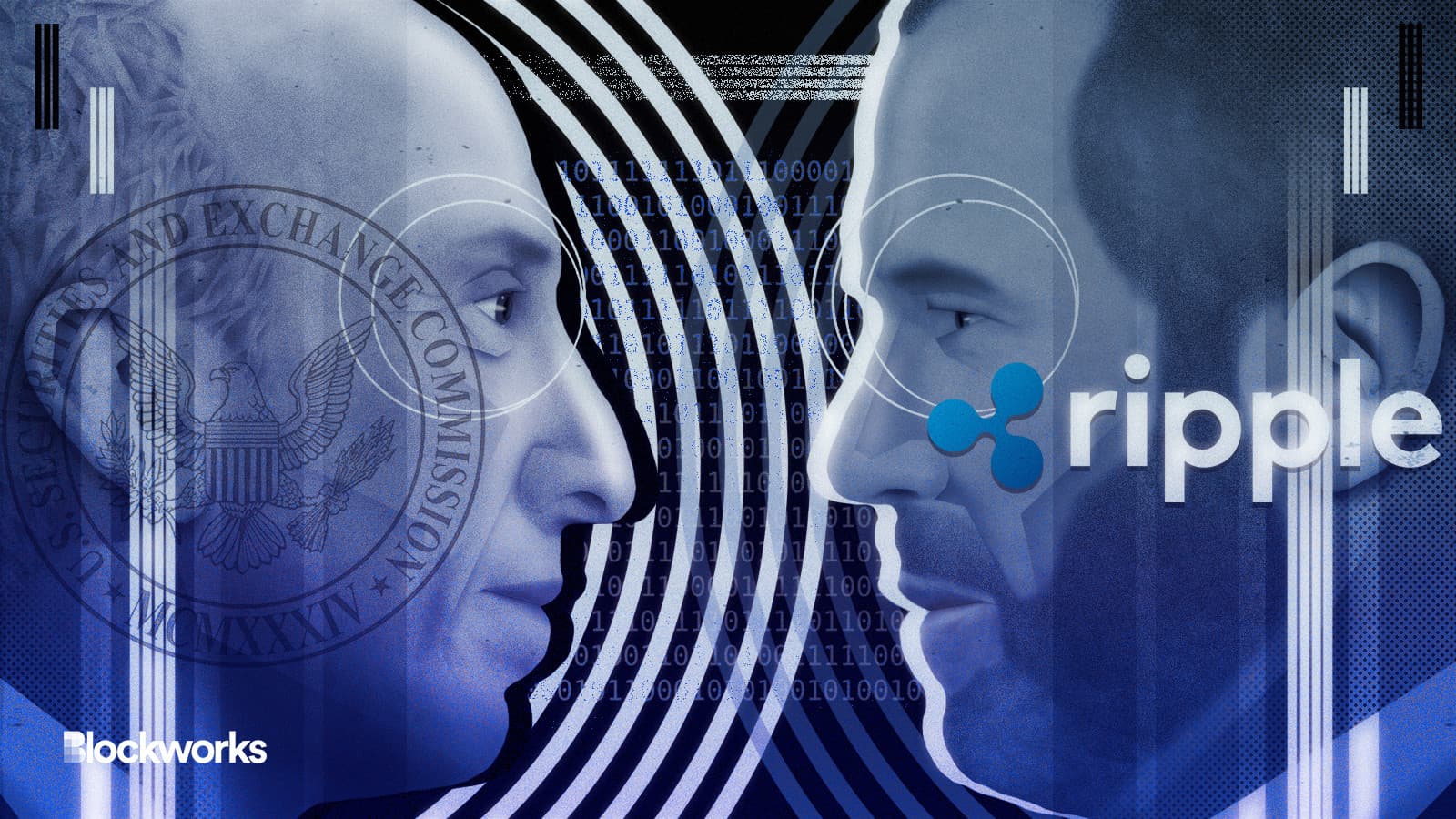Supreme Court Ruling Backs XRP ‘Fair Notice’ Defense: Ripple
While we await an outcome to the XRP case, Ripple is keeping the judge up to speed with supposedly relevant Supreme court rulings

Exclusive art by Axel Rangel, modified by Blockworks
Ripple Labs’ lengthy battle with the SEC is going down the wire.
Both sides have been waiting for US District Judge Analisa Torres to rule on whether Ripple’s years-long selling of XRP constituted an unregistered securities offering.
A conclusion could be months away, but the SEC and Ripple can still submit pleas with the court to consider new information. Ripple’s most recent filing points to a recent Supreme Court ruling, which touches on the so-called “fair notice” defense employed by its counsel.
The Due Process Clause of the US Constitution requires individuals be given fair notice of which actions are prohibited by law. For Ripple, the fair notice notice defense goes like this: It couldn’t have known to register XRP with securities regulators, as the agency had never provided enough clarity on what makes a security within the crypto context.
The US had made a case against Romanian immigrant Alexandru Bittner, who, with 272 bank accounts, broke the law when he failed to file a relevant report with regulators for each one.
US authorities demanded he pay a $10,000 Bank Secrecy Act fine for each one, while the Supreme Court recently ruled he only had to pay just one, worth $10,000.
“Bittner did not learn of this reporting obligation until returning to the United States many years later. After he returned, he filed the required reports, but not in time to avoid violations,” wrote law firm Faegre Drinker in a recent blog.
In Bittner’s case, the Supreme Court found that fair notice hadn’t been given, specifically to the point that it would demand individual fines for each undisclosed bank account.
Drawing supposed parallels between Bittner and Ripple execs, Ripple Labs’ counsel says Bittner’s recent ruling is analogous to its fight against the SEC, and should be taken into consideration.
Ripple Labs relied on SEC’s previous statements and actions that led them to understand that XRP was not a security, or so its defense goes. Therefore, the firm had no reason to believe that they were violating securities laws.
Whether Judge Torres feels the same way is another matter. Torres is expected to rule on both sides’ summary judgements sometime this year, which, outside of a settlement, would end the case without a jury.
David Canellis contributed reporting.
Get the news in your inbox. Explore Blockworks newsletters:
- The Breakdown: Decoding crypto and the markets. Daily.
- 0xResearch: Alpha in your inbox. Think like an analyst.






